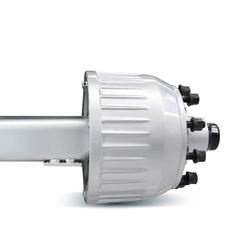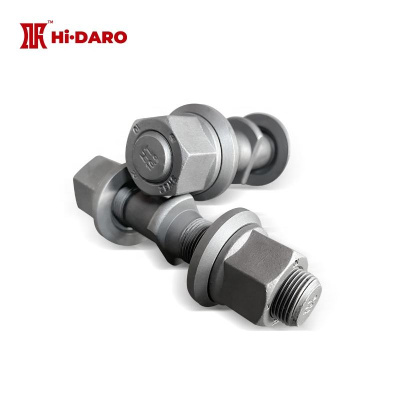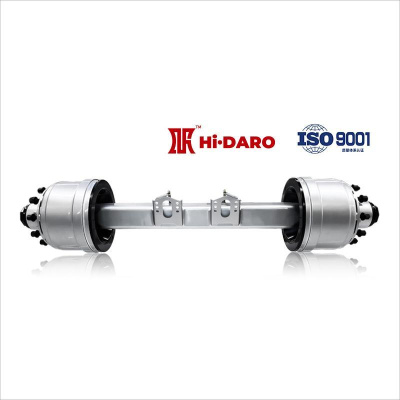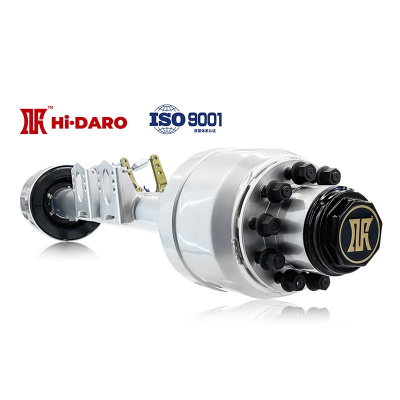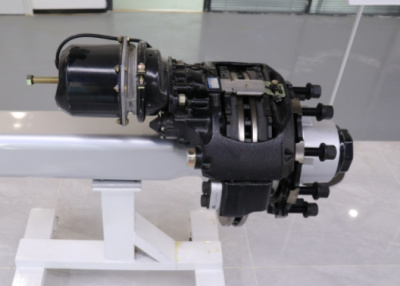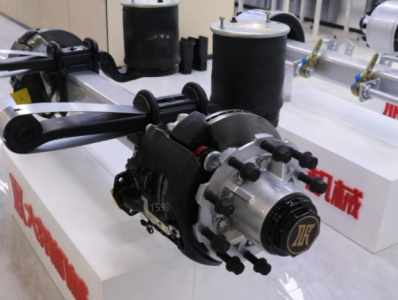How to avoid vehicle tire blowout?
Recently, many places across the country have gradually turned on the summer "barbecue" mode. Under the hot sun, the temperature of the road surface is significantly higher than the air temperature. The tires are affected by thermal expansion and contraction, the tire wall becomes thinner, the heat dissipation efficiency becomes worse, and the probability of tire blowout is higher Higher in other seasons. Once a tire blowout accident occurs, it will cause the vehicle to deflect or tilt instantly, and it is easy to lose control. If it is driving at a high speed, it may cause devastating consequences trailer axle.
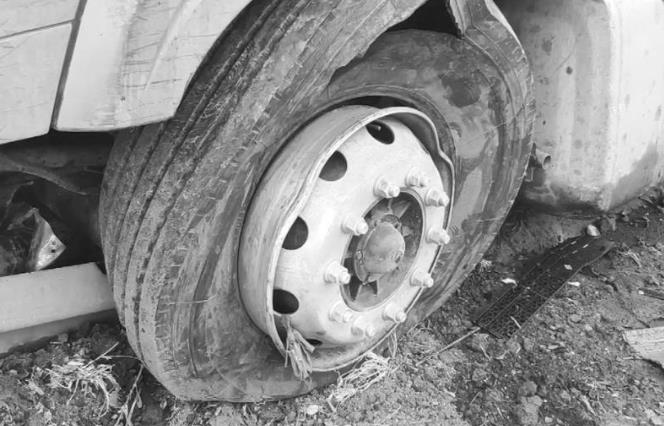
For freight vehicles, there are generally the following reasons for the tire burst of the vehicle:
1. Overload.
At present, it is common for domestic freight vehicles to be overloaded. Many car owners believe that if the freight vehicles are not overloaded, they cannot make a profit. As everyone knows, this is also one of the main reasons for tire blowout accidents.
When the actual loading capacity of the truck exceeds the maximum allowable load of the tire, the internal pressure of the tire will increase, once the sealing pressure of the tire valve is exceeded, it will cause the tire to leak. Since the rear wheels of trucks are mostly designed with twin tires, if one of the tires leaks and the owner does not find out in time, it will cause the other tire in the rear two wheels to be overloaded and cause a puncture.
2. The air pressure does not meet the standard.
There are two main situations where the tire pressure does not meet the safety requirements, one is that the tire pressure is too high, and the other is that the tire pressure is too low.
Needless to say, the tire pressure is too high, just like an overfilled balloon. In order to obtain greater load-carrying performance, some car owners often exceed the required air pressure value when inflating the tire, making the tire stay in the air for a long time. In the overloaded state, once overloaded, bumpy roads and other factors are encountered, it is easy to cause a tire blowout.
Low tire pressure is equally dangerous, as it will cause the contact surface between the tire and the road to become larger, and the driving resistance will also increase accordingly. When the vehicle is running at high speed, the front and rear trailer axle ends of the tire in contact with the road surface repeatedly, high-frequency, and greatly complete the bending and straightening action, which can easily reach the fatigue limit and cause a tire blowout.
In addition, too low tire pressure will cause relative displacement between the outer tire and inner tube of the tire running at high speed, which will cause certain wear and tear on the inner tube.
3. Driving at high speed for a long time.
When the vehicle is running at high speed for a long time, the tires rub against the road surface violently, generating a large amount of heat, which will lead to high temperature of the tire itself. Easy to raise.
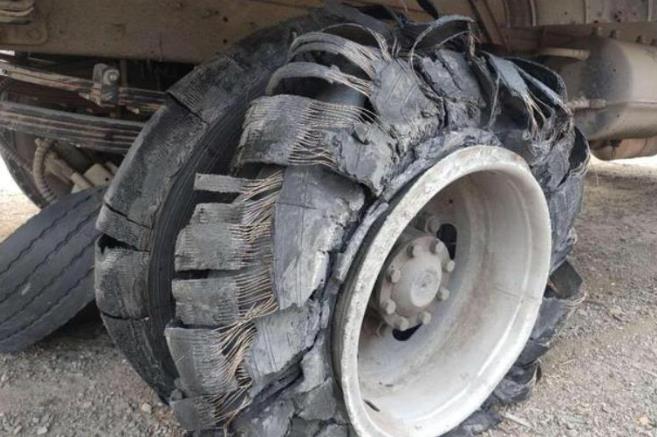
Secondly, when the vehicle is driven at high speed for a long time, the contact surface between the tire and the road surface is in a relatively stable state for a long time, and it is difficult to adjust the tire fatigue surface. After a long time, the internal pressure will easily exceed the load strength of the tire fatigue surface, resulting in a puncture.
4. Frequent braking for a long time.
If the vehicle uses the wheel end brakes frequently for a long time, the friction components of the braking system will gradually generate high temperature, which will make the rubber seal at the bottom of the tire valve worse, and the probability of tire blowout will be higher.
5. Cool the tires with cold water.
It is recommended that car owners who use the water spray cooling device turn on the air pressure water spray before starting the journey. Do not wait for the tire temperature to rise before cooling the tire. However, the high temperature and pressure are still maintained, and the internal and external forces of the tire are different, which may easily cause tire blowout and deformation and cracking of the brake drum.
6. Tire internal injury
The tire inner tube has been repaired in the past, and its sealing and load capacity are far inferior to those of unpatched tires. Secondly, rubber gaskets are generally used for repaired inner tubes. The original purpose is to prevent the repaired tire from "bubbling" at the puncture of the outer tire. If you often drive with overload or encounter bumps on the road, it is easy to cause the tire to blow out.
7. Excessive wear or corrosion on the tire surface
The load capacity and compressive strength of tires with excessive surface wear are far behind normal tires, and tires are prone to blowouts in high temperature weather, speeding, overloading, and bumpy road conditions.
Similarly, when the surface of the tire is corroded by oil and other substances, it is easy to cause a puncture. This is because the tire is made of rubber, and its chemical composition is organic substances. This organic substance is easily soluble in organic solvents such as gasoline and engine oil, causing cracks. Phenomenon, such tires do not have conventional load capacity, and are extremely prone to punctures when driving on the road.
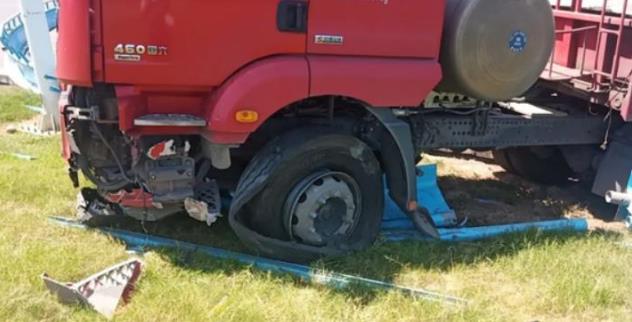
Summer run-flat tire recommendations:
1. Check the tire pressure frequently, especially after the trailer axle tire is inflated and before leaving the car, keep the tire pressure within the standard range;
2. Fill the tire with nitrogen as much as possible. Nitrogen is an inert gas that does not contain water or oil. It will not oxidize the tire or corrode the rim. It can keep the tire pressure stable for a long time and reduce the chance of tire blowout;
3. The above-mentioned factors that cause vehicle tire blowouts should be strictly avoided, not overloaded or overspeeded, and appropriate auxiliary braking devices and methods should be selected;
4. At least once a week, check the tire status, tire tread depth, whether the tire wall is aging, whether the tire is damaged, whether there are foreign objects in the tire tread, etc.;
5. Avoid driving at high speed for a long time, try to stop and rest for about 10 minutes after running for two hours, to give the tires time to cool down naturally, and do not drive for a long time to cause the temperature to get higher and higher.
